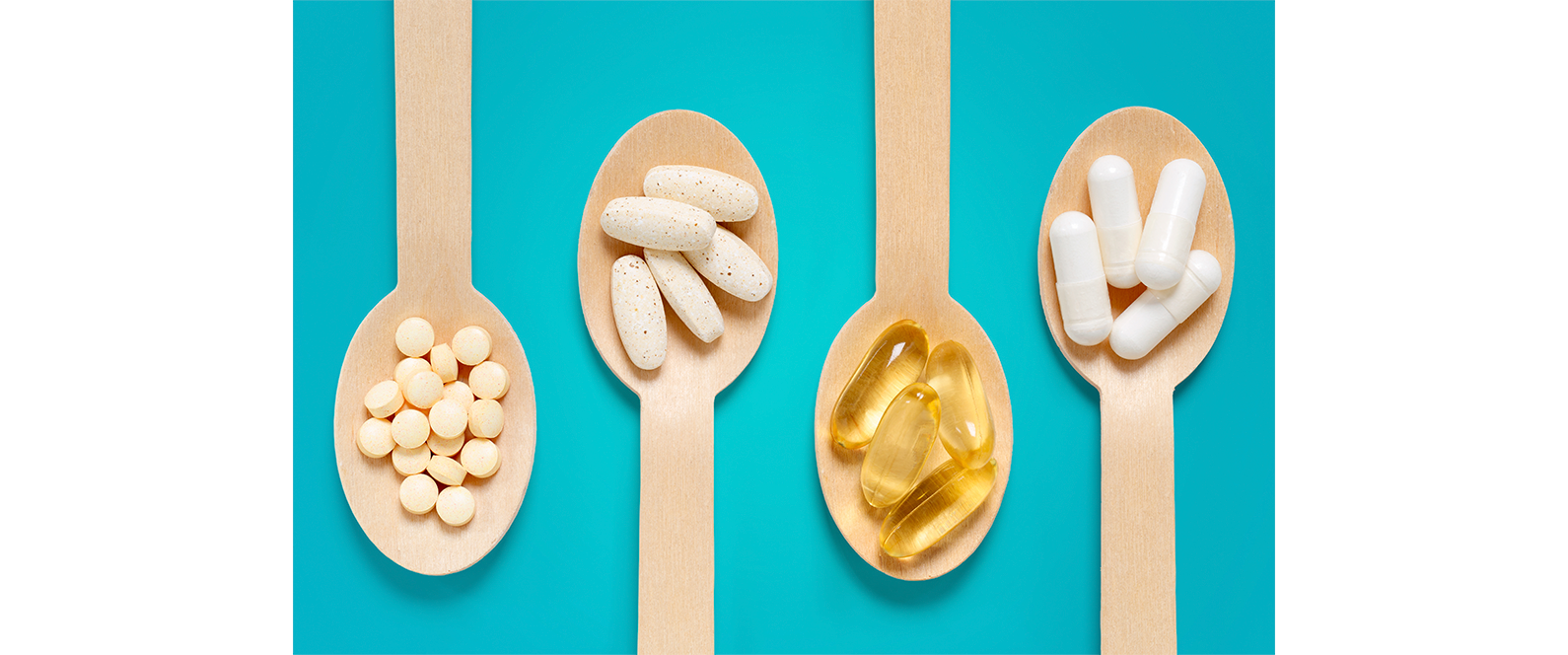Nutrition Supplements & COVID-19
 Vitamin and mineral supplements have gained much attention since the beginning of the COVID-19 pandemic
Vitamin and mineral supplements have gained much attention since the beginning of the COVID-19 pandemic
Can nutritional supplements help prevent COVID-19?
The simple answer is NO. So far, there is no recommendation or guidance on any micronutrient supplementation to prevent COVID-19 infection in a healthy individual. However, there is evidence emerging from studies suggesting that correcting pre-existing micronutrient deficiencies has the potential to support the immune system and thus mitigate the effects of COVID-19 infection. One has to exercise caution when using micronutrient supplements without consulting a physician; this is especially true for individuals with pre-existing health problems, as some supplements can have harmful side effects.
Effective COVID-19 prevention tipsFollow the official
public health recommendations of handwashing, covering your mouth and nose with a mask and maintain physical distance
The most widely studied micronutrient supplements during COVID-19 are Vitamin D, Vitamin C, and Zinc. We discuss these below:
Vitamin D
Known as the “sunshine vitamin”, Vitamin D is a nutrient that helps strengthen the immune system. Vitamin D is produced in our body naturally by exposing the skin to sunlight. It is also found in foods, including oily fish (salmon, mackerel, tuna), seafood oil, fortified milk products and egg yolks.
Risk of vitamin D deficiency
The risk of vitamin D deficiency is high among individuals whose exposure to sunlight is limited by staying indoors for much of the day or if their clothing fully covers their skin and prevents direct sun exposure when outside. Dark skin color also affects the synthesis, as melanin in the skin inhibits the production of vitamin D. The season, clouds or smog and application of sunscreen can all affect vitamin D levels in the body. The risk of deficiency is also high when natural sources of vitamin D are not included in one’s diet.
Signs and symptoms of vitamin D deficiency
Although deficiency is not obvious in adults, symptoms might include, fatigue, bone pain, muscle weakness, muscle aches, and mood changes.
Vitamin D supplementation
Vitamin D supplementation must be undertaken under a physician’s guidance, only if an individual is at risk or has established deficiency of the vitamin. It is important to understand that excess use of vitamin D can have harmful side effects, including nausea, vomiting and raised calcium levels in the blood, which can lead to additional complications.
Vitamin C
Vitamin C has an important role in maintaining a healthy immune system and preventing inflammation, because of its antioxidant properties. Vitamin C is abundant in citrus fruits, strawberries, kiwi and vegetables like peppers, broccoli and tomatoes.

Risk of Vitamin C deficiency
Vitamin C deficiency is rare but it can occur if dietary intake is limited, due to illnesses (malabsorption, some types of cancer, and hemodialysis) and in smokers. Hence, it is important to include a variety of fruits and vegetables to prevent its deficiency.
Signs and symptoms of vitamin C deficiency
Developing deficiency symptoms may take several months in an individual. Some signs to watch out are slower wound healing, bleeding gums and dry, wrinkled skin.
Vitamin C supplementation
It is advisable to take supplements after consultation with a physician if there are any concerning signs or symptoms of deficiency. Caution needs to be taken when consuming vitamin C supplements as a high intake can lead to diarrhea, nausea, and severe stomach cramps. Vitamin C also interferes with the absorption of some medications used to treat cancer and to lower cholesterol.
Zinc
Zinc is a mineral found in cells throughout body. It helps support the immune system to fight bacteria and viruses. It is important for growth in the early stages of life as well as wound healing and to keep alive our senses of taste and smell. Zinc is found in a wide variety of foods including whole grains, beans, nuts, dairy products, oysters, poultry, and meat.
Risk of Zinc deficiency
Our body stores very little of this mineral. Some medications used to treat hypertension and high cholesterol levels deplete zinc stores. Therefore, deficiency is highly probable in these individuals. There is also a risk if intake of the foods containing zinc is limited.
Signs and symptoms of zinc deficiency
It is characterized by growth retardation, loss of appetite, hair loss, lethargy, and delayed wound healing.
Zinc supplementation
Deficiency is commonly established after a medical examination as it is often associated with other health conditions. Caution needs to be exercised when supplementing as a high intake can cause copper loss, leading to anemia and weakening of the bones. Zinc is also known to be necessary for the pathogens to thrive which means striking the right balance is important in the infection management process.

In summary, eating a healthy, well-balanced diet provides all the nutrients required to prevent, fight and recover from infections as well as from other health problems. The need for supplements must be determined in consultation with your physician.
Source: World Health Organization | National Institute of Health | Science News | Nutra Ingredients
Contributors: Ms. Anupama Jithesh, Dr. Sohaila Cheema, and Dr. Sathyanarayanan Doraiswamy
Editing: Mr. John Hayward